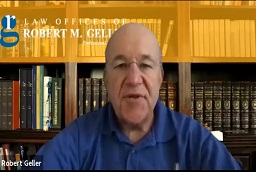Long-tail keywords are having their legitimate day in the sun. While Google Ads campaign managers have been much slower than organic SEO experts to adopt this more targeted strategy, long-tails are starting to prove worthy in both arenas. Depending on your business focus, it is potentially volumes more profitable to focus on a targeted long-tail campaign rather than a more highly competitive short keyword focus. Is a long-tail Google Ads method right for your campaigns? Read on to find out.
Table of Contents
The Long-Tail Lowdown
Long-tail keywords are, as the name suggests, more lengthy phrases that target a more specific product or service. Say you run a website that sells computer accessories. Instead of targeting a generic phase like “laptop accessories”, long-tail strategists would select something like “HP Envy screen protectors.” This is a potentially more profitable scenario for many reasons:
- Long-tail keywords are less competitive, and therefore much cheaper to bid on. Those that are highly targeted for your specific business have the potential to completely transform PPC campaign results by lowering cost-per-click and cost-per-lead, and in addition can improve your average click-through rates and quality score.
- Targeted searchers who use long-tails like “HP Envy screen protectors” are clearly focused on exactly what they are looking for. Someone searching for a generic phrase like “computer accessories” may still be in research-mode. Chances are that the user who types in a long-tail is more serious about making a purchase, which equates to a higher quality of traffic and better conversions for your website.
- Due to the decreased competitiveness of long-tails, it’s less risky to test your selected keyword phrases and gauge ROI. When you do land on a significant long-tail phrase, you have an insanely valuable opportunity to convert users at a fraction of the normal cost for your PPC campaigns.
So while long-tails may be harder to identify successfully, the payoff ratio is substantial. When they work, they are absolutely golden.
Do Long-Tails Ever Damage Your Google Ads Strategy?
While long-tail keywords offer an impressive ROI opportunity, they are certainly not always the best strategy for every business. First, consider how competitive your industry really is. If you already work in a pretty niche space, and overall search isn’t highly competitive, long-tails will only complicate matters and make it even more challenging to find and reach your customers. If, for example, you do a search for your general industry and area, such as “Las Vegas rain gutters”, and you don’t see any paid search results above the organic listings, your industry isn’t an obvious long-tail candidate.
For most of us, however, competition is fierce. This is where long-tails can give Google Ads campaigns a significant edge – they let you stand out from the masses, and find targeted customers that are looking for your exact goods and services.
The Secret to Stellar Long-Tail Success
The number one most important element to long-tail PPC campaigns is a clear and focused awareness of your target customer. As you’re identifying these characteristics, it’s essential to be immensely detailed. Don’t just create a vague notion of who your customer is; develop a comprehensive list of traits, and this will guide you as you select your keywords and overall campaign. This is the step that is most often ignored; many go straight to keyword data and phrases commonly used in the selected industry. Taking the time to thoroughly understand your customers from a psychological perspective can save massive amounts of capital and precious time in your PPC efforts.
How to Choose the Right Long-Tail Keywords for Your Business
Below are multiple tactics that aid in your keyword creation. Choose the avenues that best embrace your company’s needs.
1) Keep it Local
If your business focuses on local clientele, use your location (or locations) to narrow down your keyword focus. Examples could be “New Jersey pool supplies” or “Ocean City pool supplies.” You can opt to be even more targeted too, like “Trenton pool chemicals” or “Trenton swimming pool liners”.
2) Use Appropriate Qualifying Terms
Remember that long-tails really need to be quite specific to be successful, so identify plenty of qualifying words to add to your keyword phrases. Examples would be “red high heel shoes size 8” or “women’s red platform shoes sale”.
3) View AdWords Reports on Recent Queries
Within your Google AdWords profile, utilize the Search Query Report to view the exact phrases that triggered your ads. This list is essential to creating the right long-tail strategy, as it reflects real data from your potential customers’ searching habits. Run this query every month, at a minimum, and keep track of results in a spreadsheet so you can compare trends over time.

Need Google Ads Management Help?
Free Google Ads account review for
qualified clients
Almost 20 years experience
4) Keep Tabs on Your Competitors
Oftentimes, your competitors are the best windows into your ideal long-tail strategy. Use a tool like SpyFU to identify which keywords they are using, and beat them at their own game. This is the kind of expertise a PPC firm like Webrageous can help with immensely, as we have access to all the tools and data required to push your PPC campaign into the next dimension.
5) Utilize Internal Website Stats
If your site has an internal search, that’s another mountain of crucial data to mine for ideal long-tails. This is a fabulous way to identify very specific phrases that your customers are typing on your actual website; very often, these equate to huge success for PPC campaigns.
More and more, marketers are learning to cease the attempt to be all things to all people and truly focus on their ideal demographic. This strategy works for just about any company and business niche. If you haven’t yet dabbled in long-tail paid search efforts, drop us a line and we would be happy to explore your options. Whether you’re new to paid search or simply looking to amp up your results, Webrageous has the expertise to generate your desired results, one long-tail at a time.



















